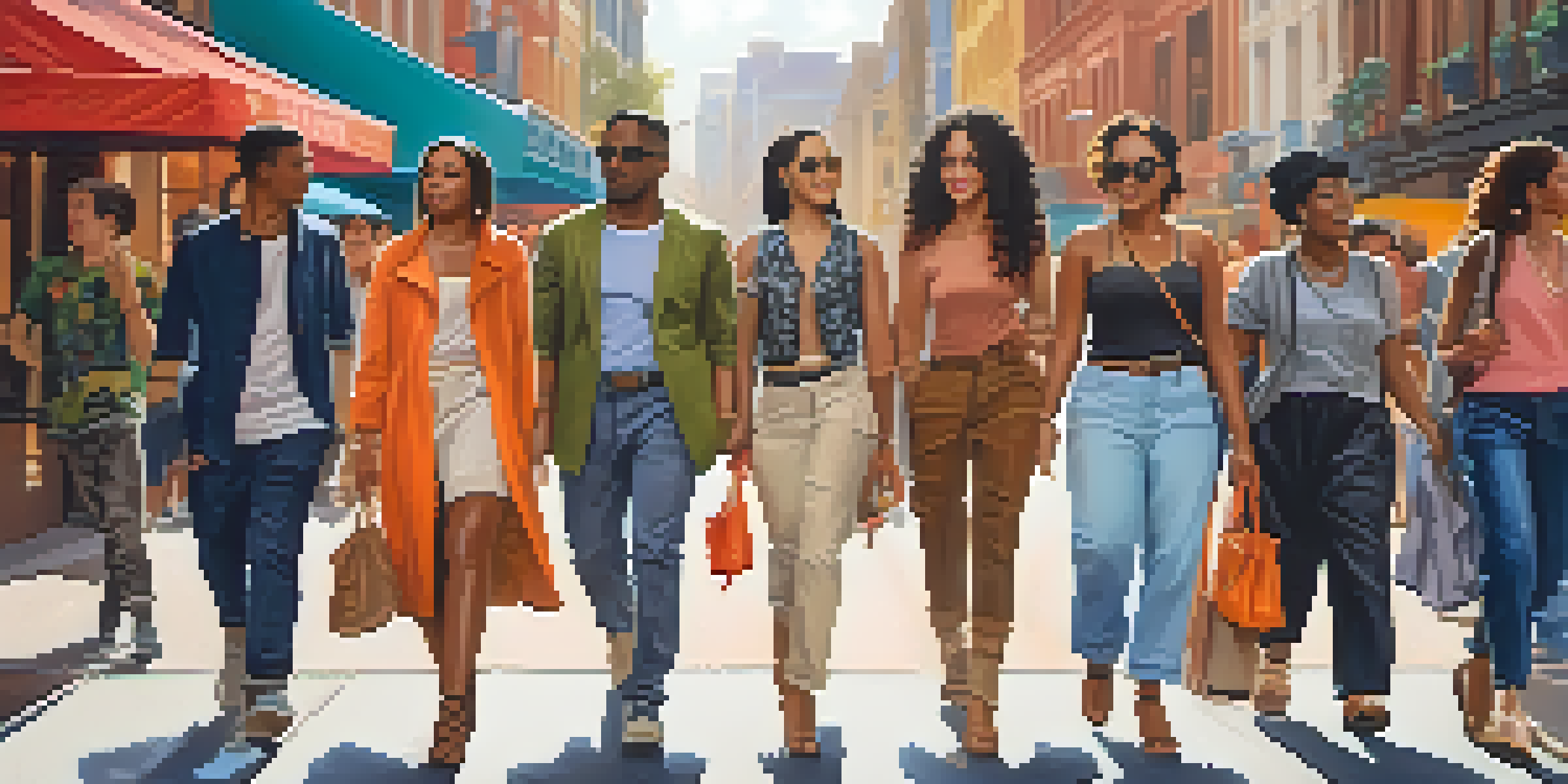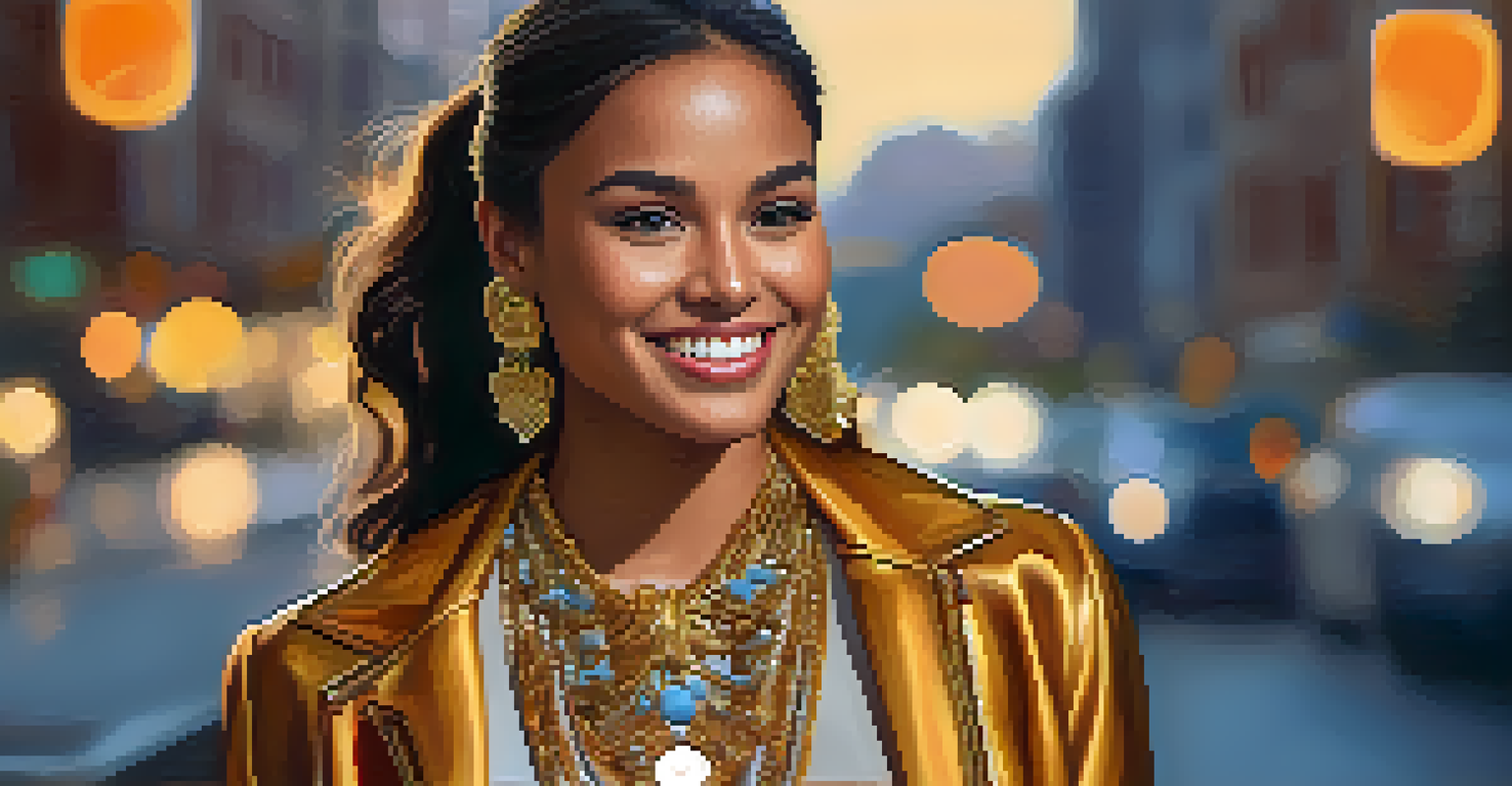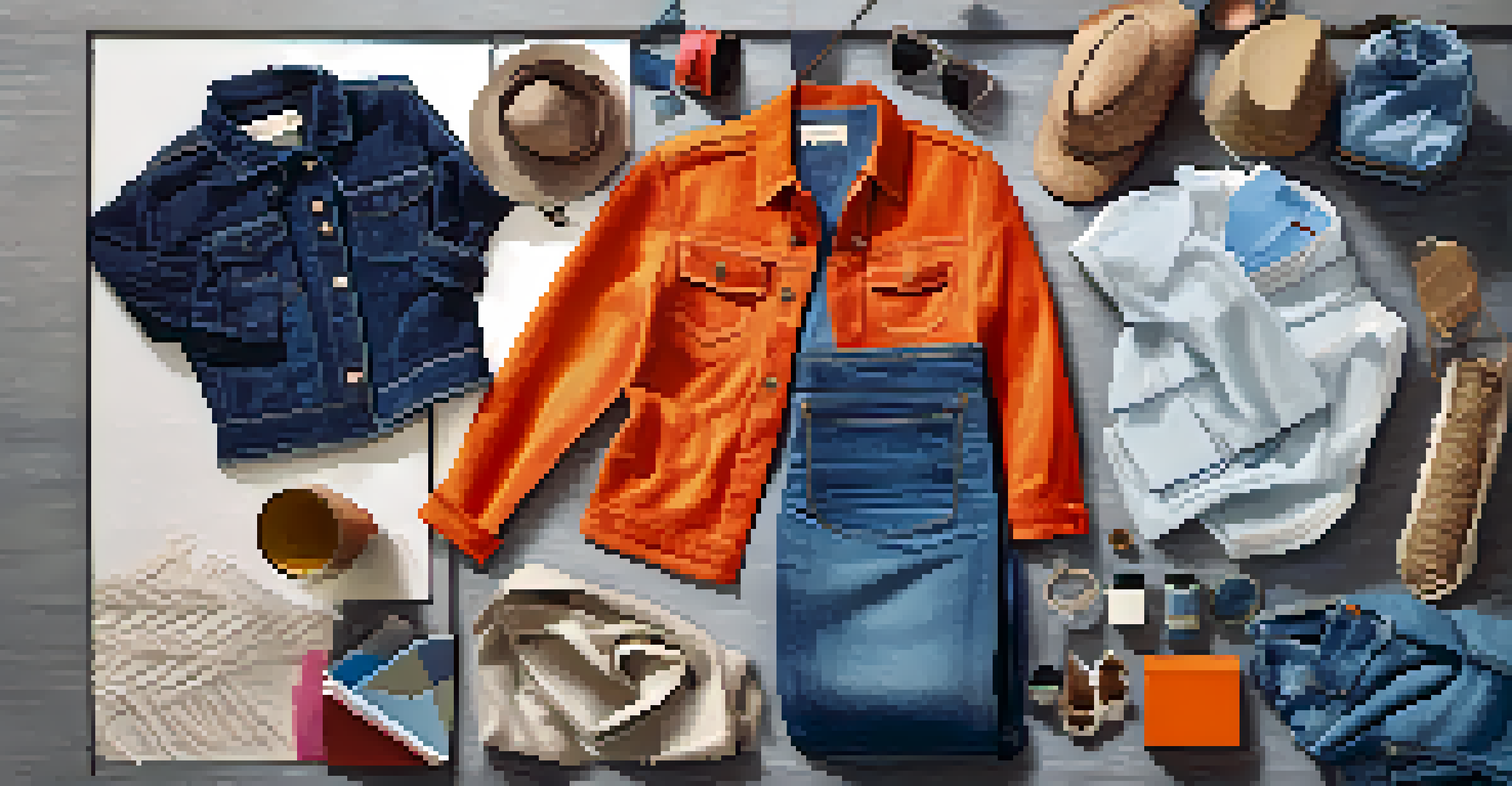The Psychology Behind Fashion Choices and Body Image Issues

Understanding the Link Between Fashion and Identity
Fashion is more than just clothing; it's a form of self-expression. The choices we make about what to wear often reflect our personality, beliefs, and social status. For many, fashion can serve as a way to communicate who they are without saying a word.
Fashion is the armor to survive the reality of everyday life.
Moreover, our fashion choices are frequently influenced by cultural and societal norms. Trends can dictate what is considered 'in' or 'out,' often leading individuals to conform in order to fit in. This societal pressure can create a complex relationship between personal identity and public perception.
Ultimately, the way we dress can affect how we feel about ourselves. When we wear clothes that align with our identity, it can boost our confidence. However, if we feel we must dress a certain way to be accepted, it can lead to internal conflict and dissatisfaction.
The Role of Media in Shaping Body Image
Media plays a significant role in shaping our perceptions of beauty and body image. From magazine covers to social media feeds, the images we consume often depict idealized versions of beauty that are not always attainable. This can create unrealistic standards that many strive to meet.

Moreover, the portrayal of fashion in media can lead to a narrow definition of what is considered fashionable or acceptable. When individuals constantly compare themselves to these images, it can result in feelings of inadequacy and low self-esteem. This cycle of comparison can be particularly damaging, especially among young people.
Fashion Reflects Identity
Fashion serves as a powerful form of self-expression, reflecting personal beliefs and social identity.
It's essential to recognize the impact of media literacy in this context. By understanding how media can influence our body image and fashion choices, we can develop a healthier relationship with both. Encouraging critical thinking about media consumption is a vital step towards fostering positive self-image.
The Impact of Social Media on Fashion and Self-Perception
Social media has transformed the way we view fashion and ourselves. Platforms like Instagram and TikTok allow users to showcase their styles, but they can also create an overwhelming pressure to keep up. This constant exposure to curated lives can lead to unrealistic expectations about one's own body and fashion choices.
Clothes mean nothing until someone lives in them.
Additionally, social media can foster a sense of community, where individuals find support and inspiration. However, it can also breed comparison and competition, leading to negative self-perception. The likes, shares, and comments can create an emotional rollercoaster that significantly impacts body image.
Navigating social media requires a balance. While it can be a source of inspiration and connection, it's crucial to be mindful of how it affects our self-esteem. Finding a personal style that feels authentic, rather than dictated by trends, can help mitigate these pressures.
Fashion as a Coping Mechanism for Body Image Issues
For some individuals, fashion serves as a coping mechanism for dealing with body image issues. Dressing in a way that makes them feel good can provide a temporary escape from negative thoughts. The act of selecting an outfit can empower individuals, allowing them to embrace their bodies in a positive light.
However, this coping strategy can also have a downside. Relying too heavily on external validation through fashion can lead to a precarious sense of self-worth. When fashion becomes the sole source of confidence, any perceived fashion faux pas can trigger feelings of inadequacy.
Media Shapes Body Perception
Media significantly influences our body image and fashion choices, often creating unrealistic beauty standards.
It's important to cultivate a sense of self that is not solely dependent on clothing choices. Finding ways to appreciate one's body and individuality beyond fashion can foster a healthier self-image. This balance is essential for long-term emotional well-being.
The Psychological Effects of Fashion Trends
Fashion trends can have profound psychological effects on individuals. When a trend becomes popular, many feel pressured to conform, often leading to anxiety about fitting in. This pressure can create a sense of belonging, but it can also lead to feelings of exclusion for those who don’t align with the trend.
Moreover, the rapid pace of fashion changes can lead to a cycle of desire and dissatisfaction. As soon as one trend emerges, another quickly follows, creating a feeling of never being 'on-trend' enough. This can lead to a constant state of wanting, where individuals feel they must continuously change their wardrobes to stay relevant.
Understanding this cycle is crucial for fostering a healthier relationship with fashion. By recognizing that trends are fleeting, individuals can learn to prioritize personal style over societal expectations, which can lead to greater satisfaction and self-acceptance.
Exploring Body Positivity in Fashion Choices
The body positivity movement has gained momentum in recent years, challenging traditional beauty norms and advocating for acceptance of all body types. This shift encourages individuals to embrace their unique shapes and sizes, promoting the idea that everyone deserves to feel confident in their clothing choices.
Fashion brands are beginning to respond by offering more inclusive sizing and diverse representation in their marketing. This is a significant step towards creating an environment where individuals of all body types can find styles that resonate with them. Such representation can empower consumers to embrace their bodies and express themselves authentically.
Personal Style vs. Trends
Embracing personal style over societal trends fosters authenticity and boosts confidence in one's self-image.
Nevertheless, body positivity is an ongoing journey. It's vital for individuals to seek out brands and communities that reflect their values. By supporting inclusive fashion, we contribute to a culture that celebrates diversity and authenticity.
Finding Personal Style Amidst Societal Expectations
Amidst societal expectations and fashion trends, finding a personal style can feel daunting. However, cultivating a unique wardrobe that reflects one's personality can be liberating. It allows individuals to break free from the constraints of conformity and embrace what truly makes them feel good.
This journey often involves experimentation and self-discovery. Trying out different styles, colors, and textures can help individuals understand what resonates with them. It's essential to remember that personal style is not static; it evolves as we grow and change.

Ultimately, prioritizing personal style over societal expectations fosters a healthier self-image. When individuals dress for themselves rather than for others, it not only boosts confidence but also promotes a sense of authenticity that can positively influence body image.